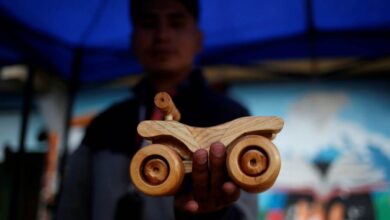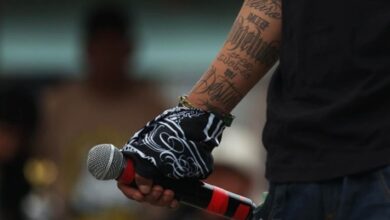Evo Morales Seeks To Regain Power In The Year Of The Bicentennial With His Fifth Candidacy
The former president of Bolivia, Evo Morales, made official his intentions for a fifth candidacy for the 2025 presidential elections .

Photo: EFE/Matias Martín Campaya /ARCHIVE
EFE
Listen to this article
Leer en español: Evo Morales busca recuperar el poder en el año del Bicentenario con su quinta candidatura
Evo Morales, the first indigenous president of Bolivia who was in charge of the country for more than 13 years, seeks to regain power with his fifth candidacy for the Presidency and thus fulfill his desire to extend his "process of change" until 2025, the year of bicentenary of the country's Independence.
Morales was born in an Andean community in a humble Aymara peasant family and only finished high school, but in "the school of life" as a young man he learned trades from llama shepherd to baker, bricklayer and trumpeter.
He then migrated to Chapare, a coca-growing area in the department of Cochabamba, where he rose to become a union leader, catapulting him to the presidential seat in 2006, making him the longest-serving president in Bolivia.
In his almost 14 years of government, Morales always boasted of the country's economic stability and that Bolivia registered one of the highest and most sustained growth in America, of more than 4% for several years.
Political wear
Evo Morales became President of Bolivia in 2005 with 54% of the votes, in 2009 the new Constitution was proclaimed in which Bolivia became a Plurinational State and in that same year the then president secured a second term by winning the elections with more than 60% of the votes.
In 2013, the Constitutional Court endorsed Morales' candidacy for the 2014 elections in a controversial decision, despite the fact that the Constitution that he himself proclaimed only allows two consecutive terms, arguing that the State was "refounded" for what was the first re-election of the then president.
The political wear and tear and disappointment of many with Morales' management was accentuated after the referendum of February 21, 2016 , in which 51.3% of Bolivians rejected the indigenous leader's disregard for the Constitution in order to run for office.
However, after a long judicial dispute, in 2017 the Supreme Electoral Court enabled Morales' fourth nomination, after the ruling Movement towards Socialism (MAS) argued that the president's right to be elected and the people's right to elect should be respected as established in the American Convention on Human Rights.
The fear that Morales would remain in power permeated a part of Bolivian society after the elections of October 20, 2019 in which "irregularities" were recorded, which unleashed a violent wave of protests throughout the country and the allegations of electoral fraud in favor of the then president became evident.
"Thank you very much for joining us," Morales said on November 10, 2019 in a speech when announcing his resignation from the Presidency after "thirteen years, nine months and 18 days" in power, which he came to on January 22, 2006.
On the night of November 11, 2019, Morales left Bolivia and spent a month in Mexico and then settled in Argentina from where he planned and directed the return of the MAS to power, with the candidacy of his former Minister of Economy, Luis Arce.
Read also: Evo Morales Faces an Internal Struggle Within His Party that Could Weaken the Left
For the 2020 elections, Morales tried to be a senator for the Cochabamba region, where he began his political career as a deputy in 1997, but his candidacy was rejected for not meeting the requirement of permanent residence in the country.
The fifth candidacy
Morales, as leader of the ruling party, has always tried to influence state decisions. He is even one of the main critics of Arce's management. Since the end of 2022 , the division within the MAS between "evistas", of a radical line, and "arcistas" or renovators deepened and led to each group separately proclaiming Arce or Morales as candidates for the 2025 elections.
"They have convinced me that I am going to be a candidate, they have forced me, of course people want to, but they are forcing me, both against Evo, the right, the Government, the empire," Morales himself confirmed today.
The Bolivian Constitution establishes a limit for reelection "once continuously", but does not clarify whether a former president is qualified to be a candidate again after a period of Government, so the Constitutional Court must rule on the validity of a fifth aspiration of Morales.
While on August 31, President Luis Arce said that at the moment "an eventual candidacy of his is not on the agenda."




